The benefits of outpatient programs for continued support

Understanding Outpatient Program Benefits
Outpatient programs have become an integral part of the recovery landscape, offering a flexible and effective solution for individuals seeking continued support for addiction and mental health challenges. These programs provide the necessary resources and skills for sustainable sobriety while allowing patients to maintain their daily lives. This article delves into the numerous advantages of outpatient programs, including cost-effectiveness, personalized care, community support, and their role in the continuum of care.
Cost-Effectiveness and Accessibility
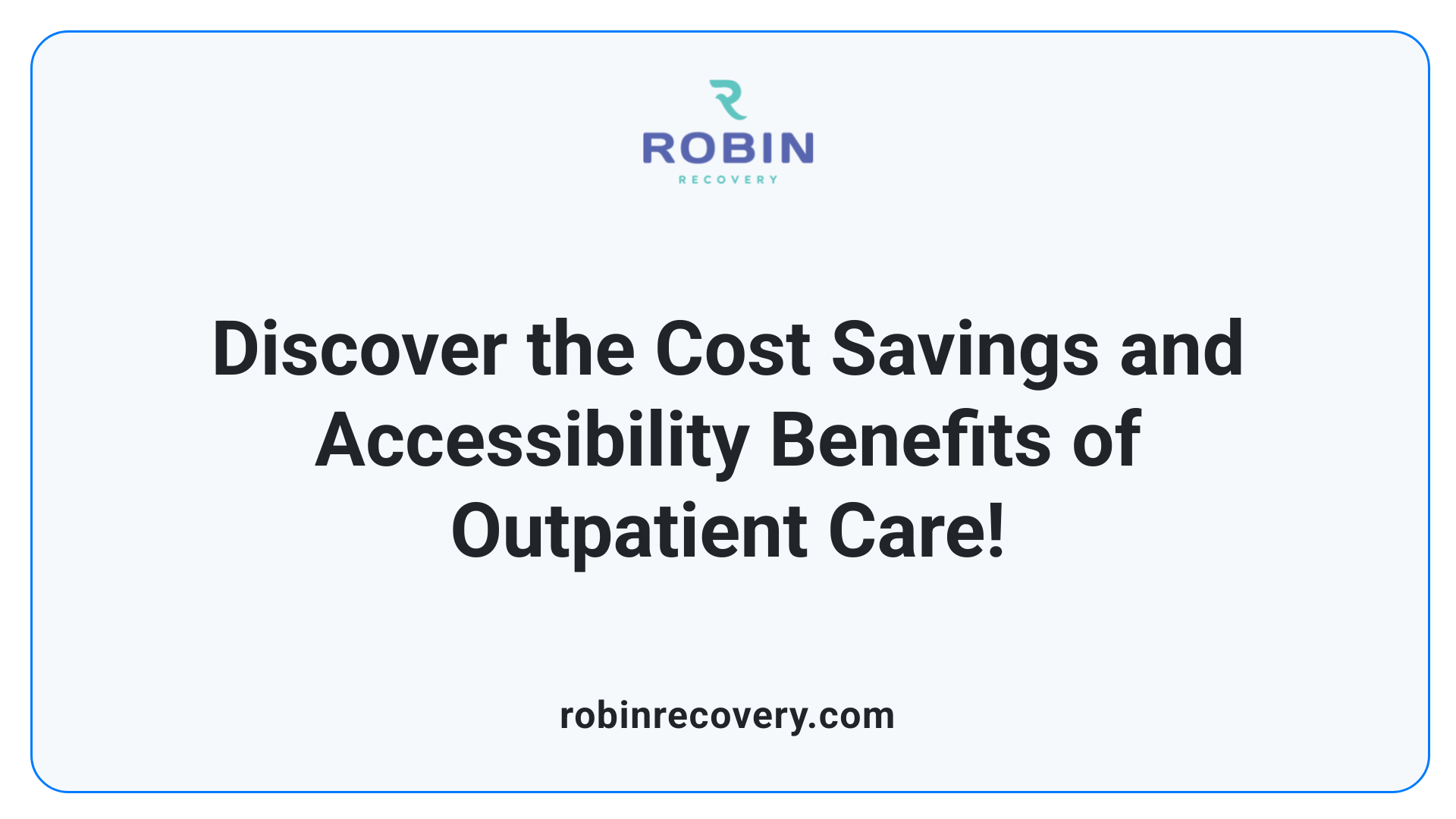
What are the benefits of outpatient care facilities?
Outpatient care facilities provide multiple advantages, particularly in the context of addiction treatment. One of the most significant benefits is cost savings. Outpatient programs avoid the expenses associated with inpatient services, such as room and board, which can significantly strain a person's finances. This approach enables individuals to receive comprehensive care without the hefty price tag that typically comes with 24/7 supervision.
Key Features of Outpatient Programs
Feature Description Benefits Cost Savings Generally more affordable than inpatient care, eliminating costs for accommodation. Increased accessibility Range of Services Offers individual and group therapy, family counseling, and holistic options. Comprehensive treatment options Flexibility and Accessibility Allows patients to blend therapy with everyday life, maintaining personal commitments. Improved treatment adherence
With outpatient treatment, many insurance plans partially cover services, making it an even more accessible option. Individuals can benefit from structured support while focusing on their recovery without incurring overwhelming debt. This financial accessibility encourages more people to seek help, ultimately improving their chances for successful rehabilitation.
In summary, outpatient facilities enhance accessibility to much-needed addiction treatment, making quality care attainable without excessive financial strain.
Flexibility and Continuity of Care
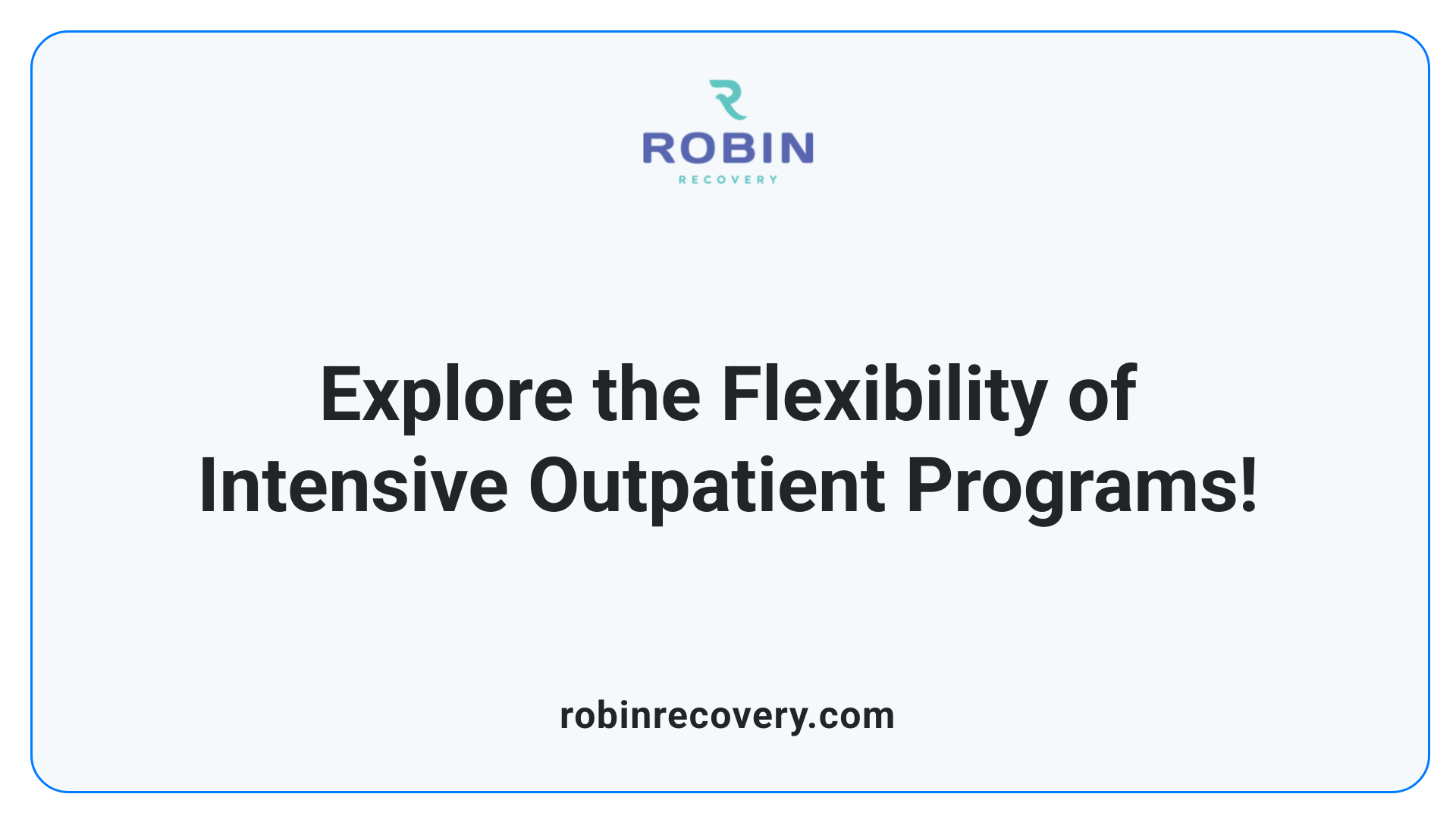
Integration of Treatment with Daily Responsibilities
Intensive Outpatient Programs (IOPs) are designed to seamlessly blend treatment with the daily lives of participants. This flexibility enables individuals to attend therapy sessions while still managing work, school, or family commitments. Typically, IOPs offer sessions 3 to 5 days a week, allowing patients to continue their routines without significant disruption. By doing so, IOP participants can practice recovery skills in real-life situations, reinforcing their learning and promoting sustainable behavioral changes.
Ongoing Support to Prevent Relapse
The structure of IOPs emphasizes long-term recovery by providing ongoing support after the initial treatment phase. Participants benefit from a robust support network that includes group therapy sessions, which foster community and reduce feelings of isolation. This environment plays a vital role in relapse prevention, as individuals can share experiences and learn coping skills together. Furthermore, IOPs encourage access to additional services, such as case management, ensuring comprehensive care that addresses not only addiction but also co-occurring mental health issues.
Overall, IOPs empower individuals to maintain a balanced lifestyle while receiving critical therapy, ultimately supporting sustained recovery and reducing the risk of relapse.
Community Support and Relapse Prevention
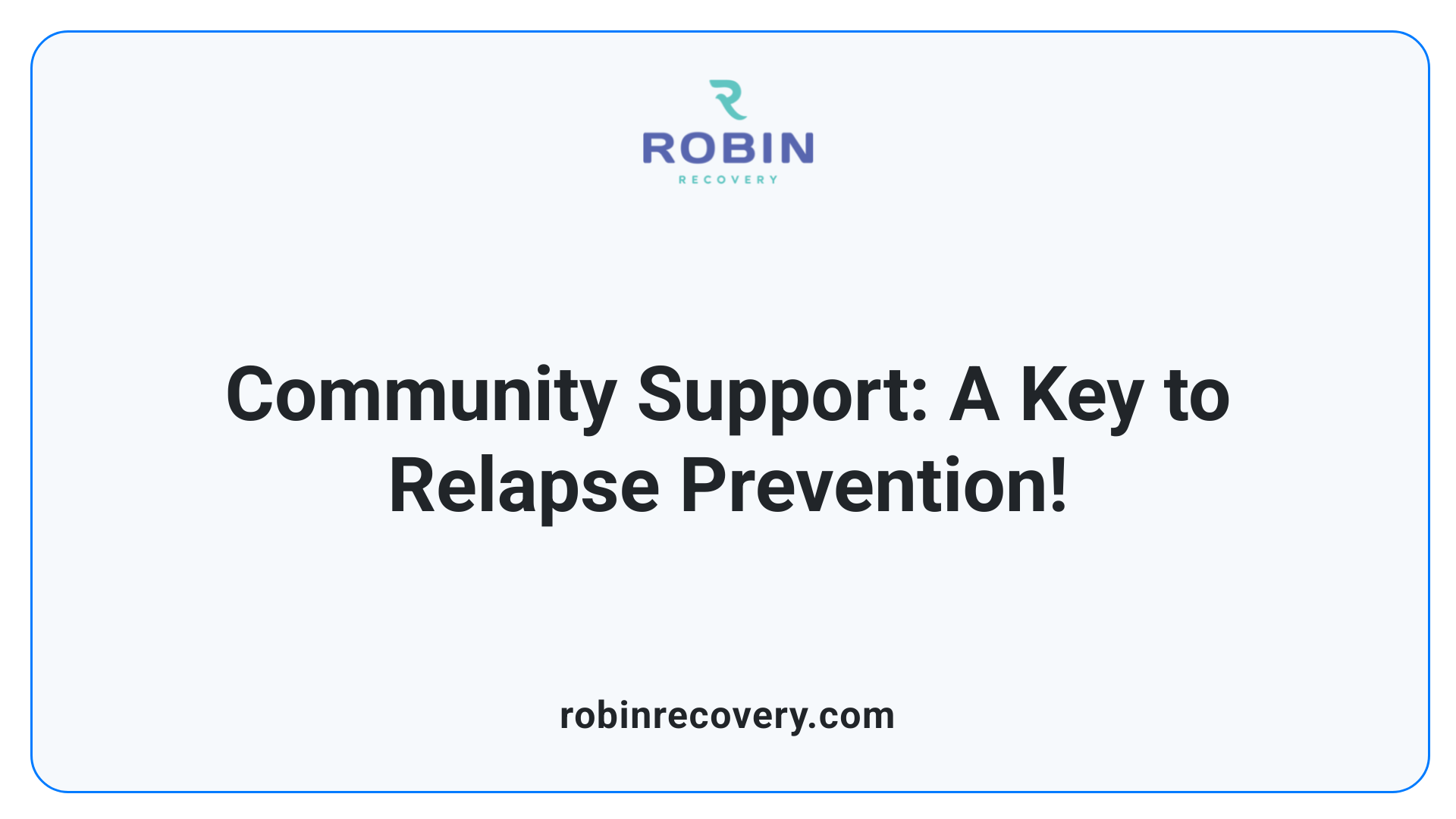
What are the benefits of outpatient addiction treatment?
Outpatient addiction treatment offers significant advantages that make it an appealing choice for many individuals seeking help. One of the primary benefits is its affordability; outpatient programs are generally less expensive than inpatient rehabs, allowing broader access, especially since many insurance plans cover a portion of the costs.
Patients in outpatient programs maintain their daily routines, which means they can continue with jobs, school, or family obligations while engaging in therapy. This flexibility is essential and often includes evening or weekend sessions to fit individual schedules. Moreover, outpatient treatment allows individuals to actively integrate new coping strategies into their lives in real time, reinforcing learning and fostering confidence.
Another advantage is the emphasis on community support. Many outpatient programs include group therapy sessions that create a sense of belonging and understanding among participants. Here, individuals benefit from shared experiences and gain emotional support from peers who understand their challenges.
What strategies can be employed for relapse prevention?
Relapse prevention is a key focus in outpatient treatment, particularly through various robust strategies. Individuals learn critical skills such as identifying triggers that lead to cravings and stress management techniques to cope effectively. These strategies typically include:
- Cognitive-Behavioral Therapy (CBT): Informs patients about thought processes that lead to substance use.
- Relapse Prevention Planning: Creating personalized action plans for managing high-risk situations.
- Community Support Systems: Engaging in local recovery groups, like 12-Step programs, which keep individuals connected and accountable.
- Family Involvement: Encouraging family participation in therapy helps strengthen support networks, crucial for maintaining long-term recovery.
This community-driven approach not only reduces isolation but also enhances resilience, making it easier for individuals to navigate the complexities of recovery.
Holistic and Personalized Treatment Plans
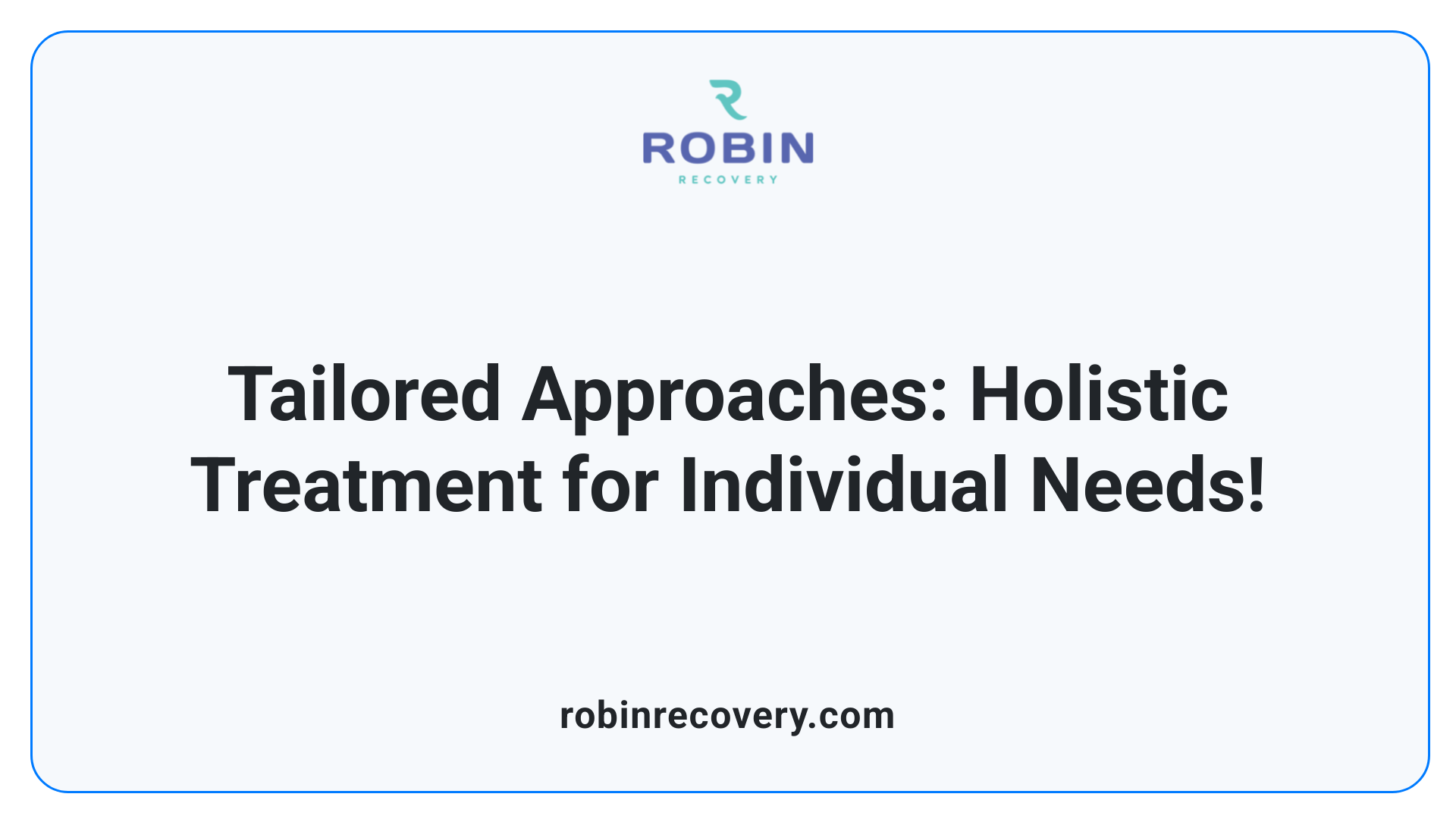
Tailored Approaches to Individual Needs
Outpatient treatment programs prioritize personalized care, ensuring that each participant receives a treatment plan tailored to their specific needs. This begins with a comprehensive assessment that identifies individual challenges and underlying causes of addiction. By recognizing these unique factors, therapists can create a strategic plan aimed at addressing the specific issues faced by each individual, thus enhancing the chances of successful recovery.
Integration of Holistic Therapies
Furthermore, outpatient treatment programs often incorporate holistic therapies as part of a comprehensive treatment approach. These can include:
- Mindfulness and Meditation: Techniques aimed at increasing self-awareness and reducing stress.
- Yoga and Physical Activities: Physical movement facilitates emotional regulation and well-being.
- Nutrition Counseling: Proper nutrition supports overall health and recovery.
- Art and Music Therapy: Creative outlets help in expressing emotions and processing experiences.
Holistic therapies complement traditional methods by addressing the emotional, psychological, and physical aspects of recovery, promoting overall well-being. Together, these personalized and holistic approaches create a robust foundation for individuals on their path to sustained recovery.
Family Involvement and Privacy
Role of Family in Recovery Support
Family involvement is crucial in outpatient treatment programs. Families often participate in therapy sessions, enhancing communication and understanding of addiction. This engagement fosters a supportive environment, allowing family members to contribute positively to the healing process. Moreover, family therapy provides education about addiction, ensuring that loved ones understand the challenges individuals face. Involvement empowers families to reinforce recovery at home.
Confidentiality in Treatment
Confidentiality is a top priority in outpatient treatment. Programs adhere to HIPAA regulations, ensuring that personal information remains private and secure. This commitment to confidentiality creates a safe space for individuals to share their experiences and struggles without fear of judgment or exposure. Thus, patients can focus on their recovery while knowing that their privacy is respected.
Adolescent-Focused Outpatient Programs
Tailored Programs for Teens
Adolescent-focused outpatient programs are specially designed to meet the unique needs of teenagers facing mental health or substance abuse issues. These programs are adaptable, offering a range of treatment options such as individual therapy, group sessions, family counseling, and holistic approaches. The personalization of treatment plans based on comprehensive assessments ensures that each teen's specific challenges and underlying concerns are addressed.
Importance of Routine Integration
One of the significant benefits of outpatient treatment for adolescents is the ability to integrate treatment into their daily lives. Programs typically occur 3-5 times a week, allowing teens to continue attending school and participating in family activities. This flexible structure helps minimize disruptions, making it easier for young individuals to practice skills learned in therapy in real-life situations immediately. By maintaining their daily routines, adolescents can establish a sense of normalcy, which is crucial for promoting long-term recovery and emotional well-being.
Continued Engagement and Alumni Networks
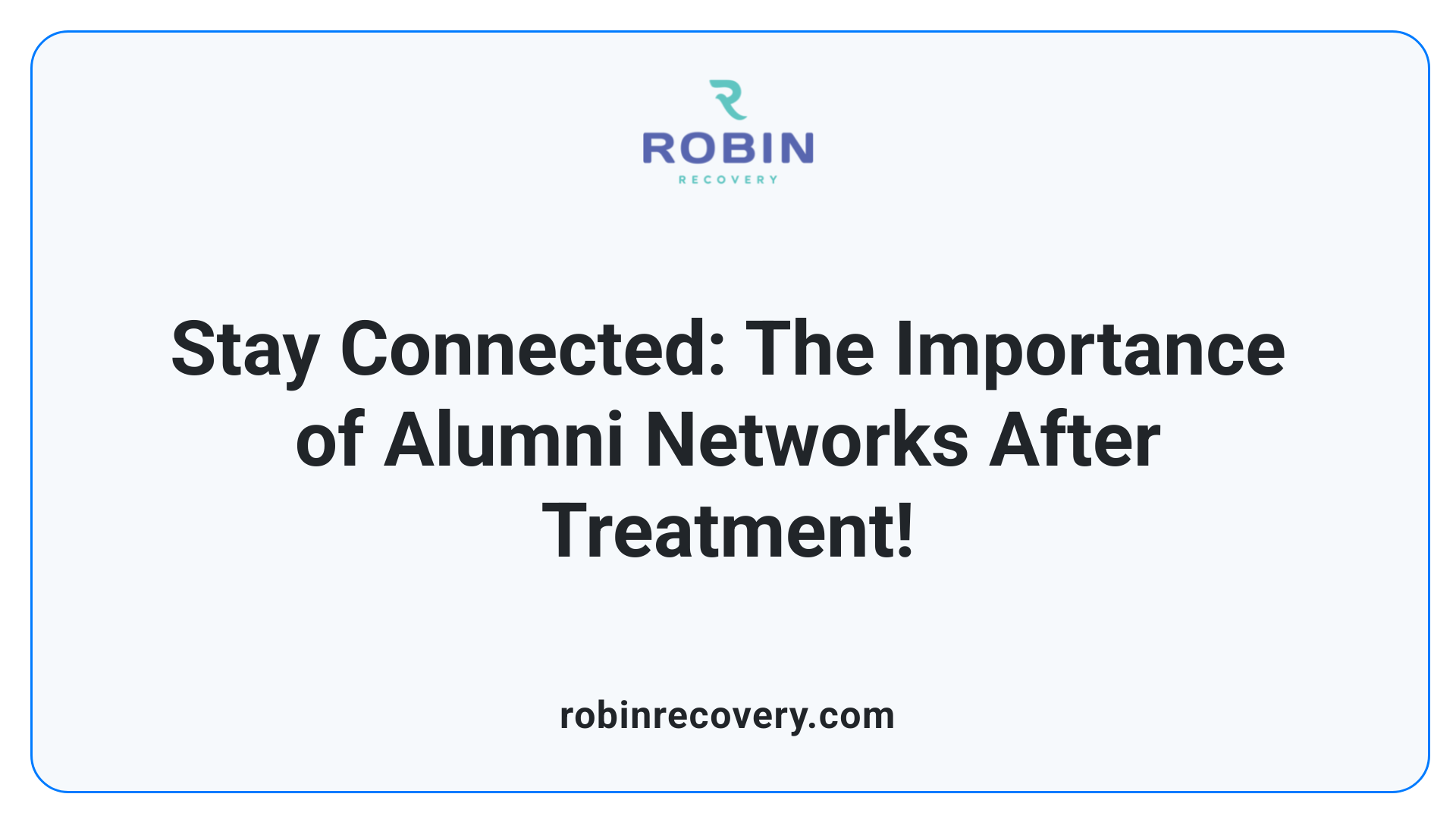
Post-treatment Support and Accountability
After completing an outpatient treatment program, individuals can greatly benefit from continued engagement through ongoing support groups and aftercare services. These resources ensure that those in recovery remain accountable and connected to peers who share similar aspirations. Regular participation in group sessions helps individuals discuss their challenges and successes, reinforcing their commitment to sobriety.
A strong support network acts as a safety net, providing emotional support during difficult times and helping individuals navigate potential triggers. Access to therapy and resources enhances long-term recovery success and reduces the likelihood of relapse, enabling individuals to remain focused on their sobriety goals.
Benefits of Alumni Networks for Sustained Recovery
Alumni networks play a crucial role in fostering a sense of community for individuals post-treatment. These networks create opportunities for past participants to connect, share experiences, and support each other’s recovery journeys.
Benefits of engaging with alumni networks include:
- Networking: Building connections with peers who understand the recovery journey.
- Ongoing Support: Access to resources and guidance from those who have successfully maintained their sobriety.
- Regular Events: Opportunities to participate in workshops, meet-ups, and community activities, ensuring continued motivation.
- Shared Experiences: Learning from others' stories can provide perspective and encouragement.
Through these networks, individuals not only gain practical support but also a sense of belonging, essential for maintaining recovery in the long term.
The Lasting Impact of Outpatient Programs
Outpatient programs play a crucial role in the continuum of care for individuals seeking recovery from addiction and mental health disorders. By providing cost-effective, flexible, and comprehensive treatment options, these programs empower individuals to sustain their recovery journey while managing their everyday responsibilities. The emphasis on community support, personalized care, and ongoing engagement ensures that patients receive the resources and skills needed to maintain long-term sobriety and well-being. As the recovery landscape continues to evolve, outpatient programs stand as a beacon of hope and a testament to the power of accessible, effective care.
References
- The Top 10 Benefits of Outpatient Alcohol and Substance Use ...
- 5 Benefits of an Intensive Outpatient Program (IOP) | PrairieCare
- Chapter 3. Intensive Outpatient Treatment and the Continuum of Care
- The Benefits of Choosing an Outpatient Treatment Program
- Five Benefits of an Intensive Outpatient Program
- Deciding If Outpatient Treatment is the Right Option
- Benefits of Outpatient Treatment For Teens
- The Benefits of Outpatient Programs in Addiction Treatment
- Substance Abuse Intensive Outpatient Programs: Assessing the ...
- Can Outpatient Treatment Help My Addiction? | PHP & IOP
